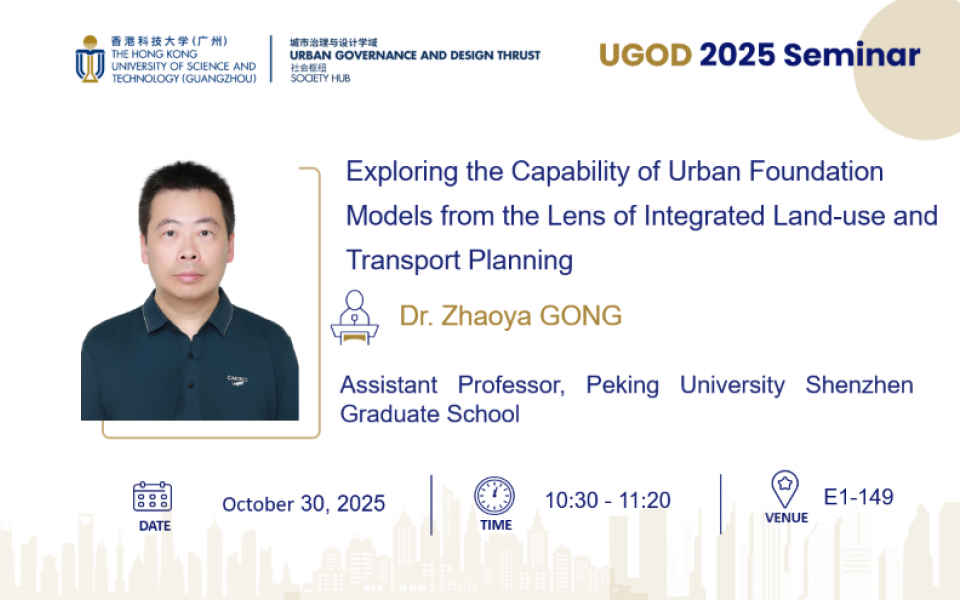UGOD Seminar | Exploring the Capability of Urban Foundation Models from the Lens of Integrated Land-use and Transport Planning
Supporting the below United Nations Sustainable Development Goals:支持以下聯合國可持續發展目標:支持以下联合国可持续发展目标:
Understanding the dynamics of urban systems is crucial for evaluating spatial plans and optimizing urban structures and configurations. The systematic relationships between urban land-use and transport are at the core of urban systems, which lays the foundation for generalizable urban knowledge and rules shared by urban processes under various contexts. Recent advances in Large Language Models in general and Geo-Foundation Models in specific domains ignite the longing for constructing urban foundation models that can capture common knowledge for urban systems and are generalized to different urban contexts, hence supporting smarter spatial planning and decision-making. This talk takes a perspective on integrated land-use and transport systems to explore the capability of potential urban foundation models constructed for urban monitoring, prediction, and optimization. The focus is on the model transferability between different spatial and thematic contexts. We hope these efforts could lead to a doubly informed framework for urban theory and AI, paving the way for constructing authentic urban foundation models.
Dr. Zhaoya Gong is an Assistant Professor of the School of Urban Planning and Design at the Peking University Shenzhen Graduate School. He received Ph.D. in Geography from the University of North Carolina at Charlotte and was previously a Lecturer at the University of Birmingham, UK. His research interests span Geographic Information Science, Transport and Urban Geography, and Regional Science, with a focus on geospatial intelligence, spatiotemporal big data analytics, and high-performance geocomputation. He has published over 40 papers in leading journals including International Journal of Geographical Information Science, Computer, Environment and Urban Systems, and National Science Review. His work has been recognized with awards from the American Association of Geographers and Regional Science Association International, and he has led projects funded by National Natural Science Foundation of China, National Key R&D Program of China, ESRC and NERC from UK and other agencies. He serves as Deputy Secretary of the Smart Territory Space Working Committee of the China Association for Geospatial Industry and Sciences and as an Executive Committee Member of ACM SIGSPATIAL China.
